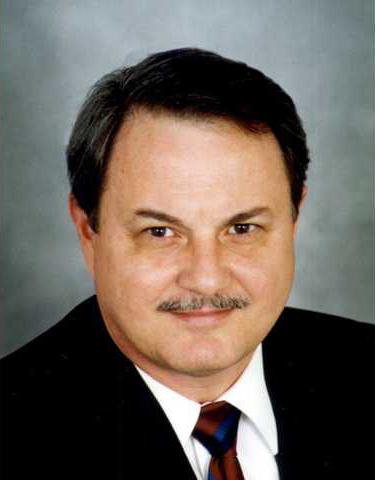As a government agency grows, there is a tendency for the agency to become a bureaucracy. I am not fond of bureaucracy and as clerk of the superior, state, juvenile and magistrate courts of Liberty County, I have done everything within my power to ensure that your clerk’s office never becomes a “system of administration marked by officialism, red tape and proliferation” — which is an onerous task because almost every function of the office is governed by state and federal laws, court decisions, and state- and local-court rules.
Individuals hired to work in the clerk’s office understand prior to being employed that they are members of a team.
The purpose of our team is plainly stated in our mission statement: “To serve the citizens of Liberty County and other customers professionally, politely and with dignity and respect.” Ultimately, staff and I measure our success by how well we serve customers — including countless other government agencies and court officials. The office is a government agency, but we operate like a private sector business and take great pride in going to extraordinary lengths to help everyone. There are, however, limits to how much help we can provide when it comes to providing legal advice (as noted in my June 28 column, “Clerks of court, staff take care not to cross thin line”). Our philosophy is, even if we cannot help a customer, to point the customer to where he or she can get help.
I have kept staffing to a minimum in the clerk’s office. In 1983, when I began running the office as chief deputy clerk, there were 10 employees serving superior, state and juvenile courts and performing all real-estate and personal-property clerical duties. The office now has 16 employees. Each is a deputy clerk empowered to perform any duty which, by law, the clerk is required to or may perform. Eight deputies serve those three courts, plus the magistrate court’s civil division. Four deputies are intake officers, responsible for receipting an average $4 million per year and performing intricate front-end duties required before accepting for filing any court or land records. One deputy manages juries, and two are responsible for processing all real-estate and personal-property records of the county. (In comparable counties, the average staff of the real-estate division is 12 employees). Linda Thompson, the chief deputy clerk, is responsible for fiscal management and accounting and assists with administration. As clerk, I am ultimately responsible — and legally liable — for every clerical act performed or not performed by staff of the office.
Because staffing is minimal, the office is further structured into three teams — intake, court and real estate. Members of each team are cross-trained to perform the duties of every other member of the team. When any team member is on leave because of sickness, vacation or any other reason, others perform that member’s assigned duties. Likewise, if an employee’s workload becomes too great, other team members help. Each team has a leader; however, team leaders are also team members, meaning they work in the trenches just like other team members.
Keeping costs down is a major concern for me. Thus, I have requested minimal appropriations from county taxes for operation of the office — particularly for technology — since 1985, when I first automated all clerical functions. Instead, almost all monies required for computer hardware, communications, equipment for the office — and the four courts I serve — are provided by the Georgia Superior Court Clerks’ Cooperative Authority and from other sources, including a federal grant. An estimated $600,000 has been derived for the benefit of the office and local taxpayers during the past two decades from such partnerships.
Tremendous savings to taxpayers are realized from centralizing under my supervision the clerical duties of the four courts. This eliminates duplication of services and proliferation of tiers of bureaucracy within our local court system. Furthermore, it provides locally a “one-door court system,” with the clerk being directly accountable to residents, and segregates clerical duties so judges are insulated from undue exposure to information about a case over which the judge will preside or potentially rule.
Juvenile court now has two part-time judges and is no longer a subdivision of superior court. Recent changes in law have tremendously increased the workload of the juvenile court. A fourth superior-court judgeship was created prior to 2000. Superior court now has a case-assignment system, with judges handling cases they are assigned, which has substantially increased the workload of court staff. The growth of the county has increased exponentially the amount of land records filed annually. The volume of land records filed during the past two decades is 271 times greater than the total volume filed in the previous 242 years since the office began filing land records. Enactment of more laws each year requiring the office to perform more services and to report more information to local, state and federal agencies further taxes staff, as does the demand for expanded services.
The office has the 13th-highest cumulative caseload of the state’s 159 counties. During the past decade, the caseload increased more than
12 percent per year, with the greatest increase occurring in magistrate court (34 percent since 2013). Compared with other clerks’ offices in the state, your clerk’s office operates and performs an almost endless array of court and land-management clerical, record-keeping and administrative duties required by law with almost 40 percent fewer employees. Using technology, cross-training and a team effort, staffing costs are minimized while simultaneously increasing efficiency of employees’ job performance and properly accounting for and paying out every cent of the $4 million collected annually from fines, fees and court costs.
Wilkes is the Liberty County clerk of superior court and administrator for the county’s state, juvenile and magistrate courts.

